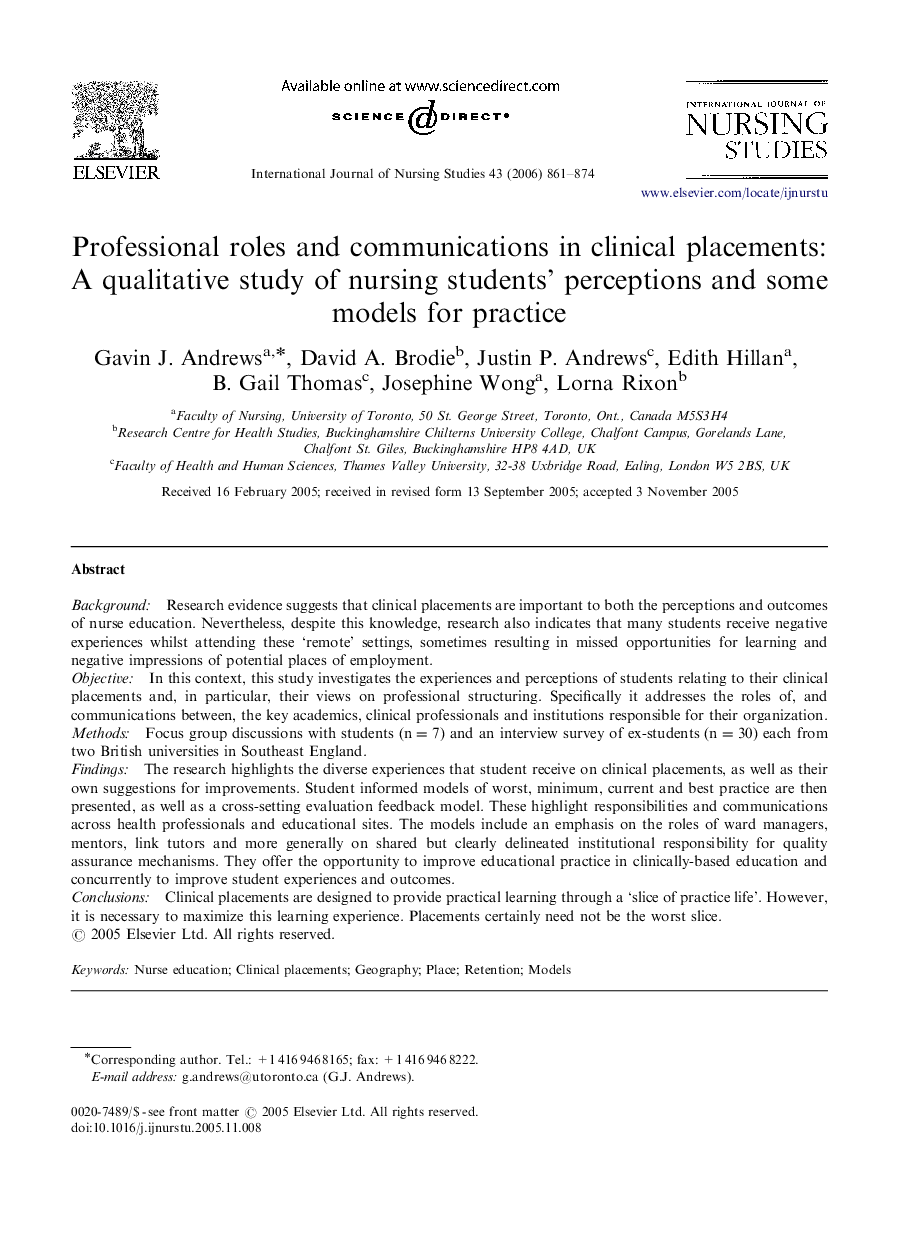| Article ID | Journal | Published Year | Pages | File Type |
|---|---|---|---|---|
| 1077915 | International Journal of Nursing Studies | 2006 | 14 Pages |
BackgroundResearch evidence suggests that clinical placements are important to both the perceptions and outcomes of nurse education. Nevertheless, despite this knowledge, research also indicates that many students receive negative experiences whilst attending these ‘remote’ settings, sometimes resulting in missed opportunities for learning and negative impressions of potential places of employment.ObjectiveIn this context, this study investigates the experiences and perceptions of students relating to their clinical placements and, in particular, their views on professional structuring. Specifically it addresses the roles of, and communications between, the key academics, clinical professionals and institutions responsible for their organization.MethodsFocus group discussions with students (n=7) and an interview survey of ex-students (n=30) each from two British universities in Southeast England.FindingsThe research highlights the diverse experiences that student receive on clinical placements, as well as their own suggestions for improvements. Student informed models of worst, minimum, current and best practice are then presented, as well as a cross-setting evaluation feedback model. These highlight responsibilities and communications across health professionals and educational sites. The models include an emphasis on the roles of ward managers, mentors, link tutors and more generally on shared but clearly delineated institutional responsibility for quality assurance mechanisms. They offer the opportunity to improve educational practice in clinically-based education and concurrently to improve student experiences and outcomes.ConclusionsClinical placements are designed to provide practical learning through a ‘slice of practice life’. However, it is necessary to maximize this learning experience. Placements certainly need not be the worst slice.
